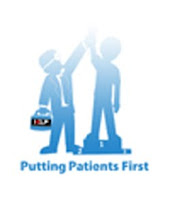Increasingly, health information is accessed via the internet, but a number of barriers prevent consumers making effective use of it. These barriers include inadequate skills to search, evaluate and use the information. It has not yet been demonstrated whether training consumers to use the internet for health information can result in positive health outcomes.
People with low health literacy typically:
–Fail to seek preventive care
–Are less likely to follow treatment plans
–Have increased rates of hospitalization and use of emergency services
–Have difficulty understanding written and oral communication
–Stay in the hospital longer than someone with higher health literacy
There are thousands of health-related websites on the Internet. Some of the information on these websites is reliable. Some of it is not. Some of the information is current. Some of it is not. Choosing which website to trust is worth thinking about.
Some questions you may ask:
1. How do I find reliable health information online?
2. Who sponsors the website? Can you easily identify the sponsor?
3. Who wrote the information?
4. Who reviews the information? Does the website have an editorial board?
5. When was the information written?
Use your common sense and good judgment when evaluating health information online. There are websites on nearly every conceivable health topic and no rules overseeing the quality of the information. Take a deep breath and think a bit before acting on any health information you find on the web. Don't count on any one website. If possible, check with several sources to confirm the accuracy of your results. And remember to talk with your doctor.




No comments:
Post a Comment